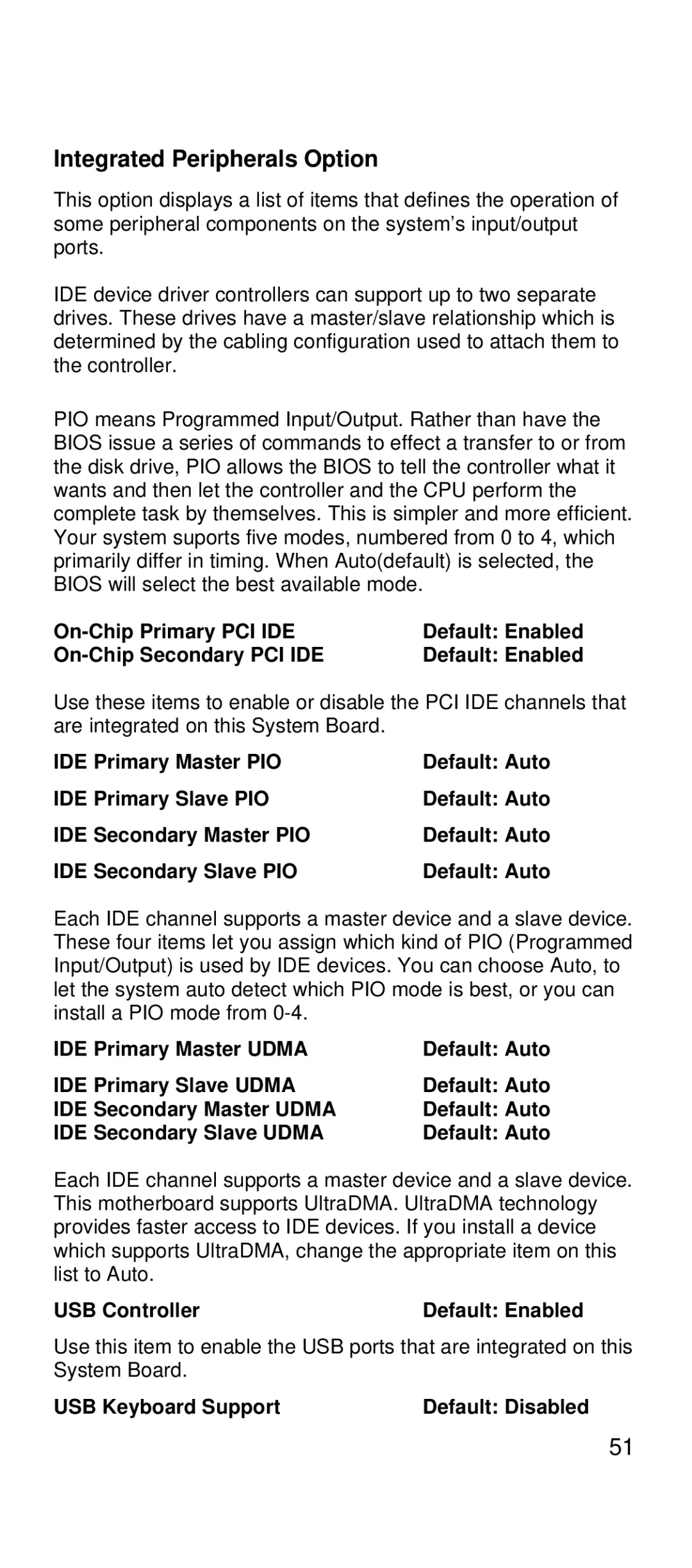Integrated Peripherals Option
This option displays a list of items that defines the operation of some peripheral components on the system’s input/output ports.
IDE device driver controllers can support up to two separate drives. These drives have a master/slave relationship which is determined by the cabling configuration used to attach them to the controller.
PIO means Programmed Input/Output. Rather than have the BIOS issue a series of commands to effect a transfer to or from the disk drive, PIO allows the BIOS to tell the controller what it wants and then let the controller and the CPU perform the complete task by themselves. This is simpler and more efficient. Your system suports five modes, numbered from 0 to 4, which primarily differ in timing. When Auto(default) is selected, the BIOS will select the best available mode.
Default: Enabled | |
| Default: Enabled |
Use these items to enable or disable the PCI IDE channels that are integrated on this System Board.
IDE Primary Master PIO | Default: Auto |
IDE Primary Slave PIO | Default: Auto |
IDE Secondary Master PIO | Default: Auto |
IDE Secondary Slave PIO | Default: Auto |
Each IDE channel supports a master device and a slave device. These four items let you assign which kind of PIO (Programmed Input/Output) is used by IDE devices. You can choose Auto, to let the system auto detect which PIO mode is best, or you can install a PIO mode from
IDE Primary Master UDMA | Default: Auto |
IDE Primary Slave UDMA | Default: Auto |
IDE Secondary Master UDMA | Default: Auto |
IDE Secondary Slave UDMA | Default: Auto |
Each IDE channel supports a master device and a slave device. This motherboard supports UltraDMA. UltraDMA technology provides faster access to IDE devices. If you install a device which supports UltraDMA, change the appropriate item on this list to Auto.
USB Controller | Default: Enabled |
Use this item to enable the USB ports that are integrated on this System Board.
USB Keyboard Support | Default: Disabled |
51
